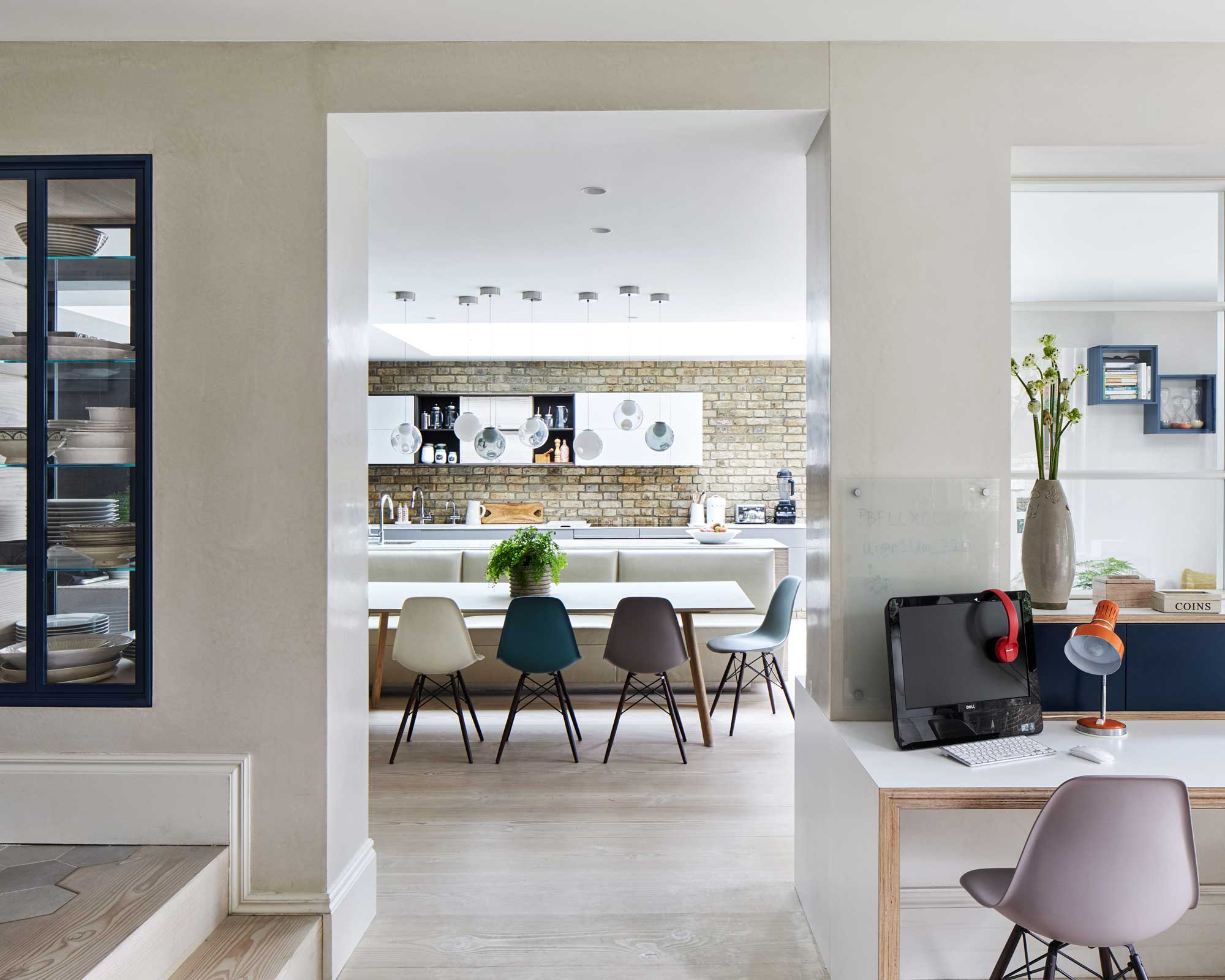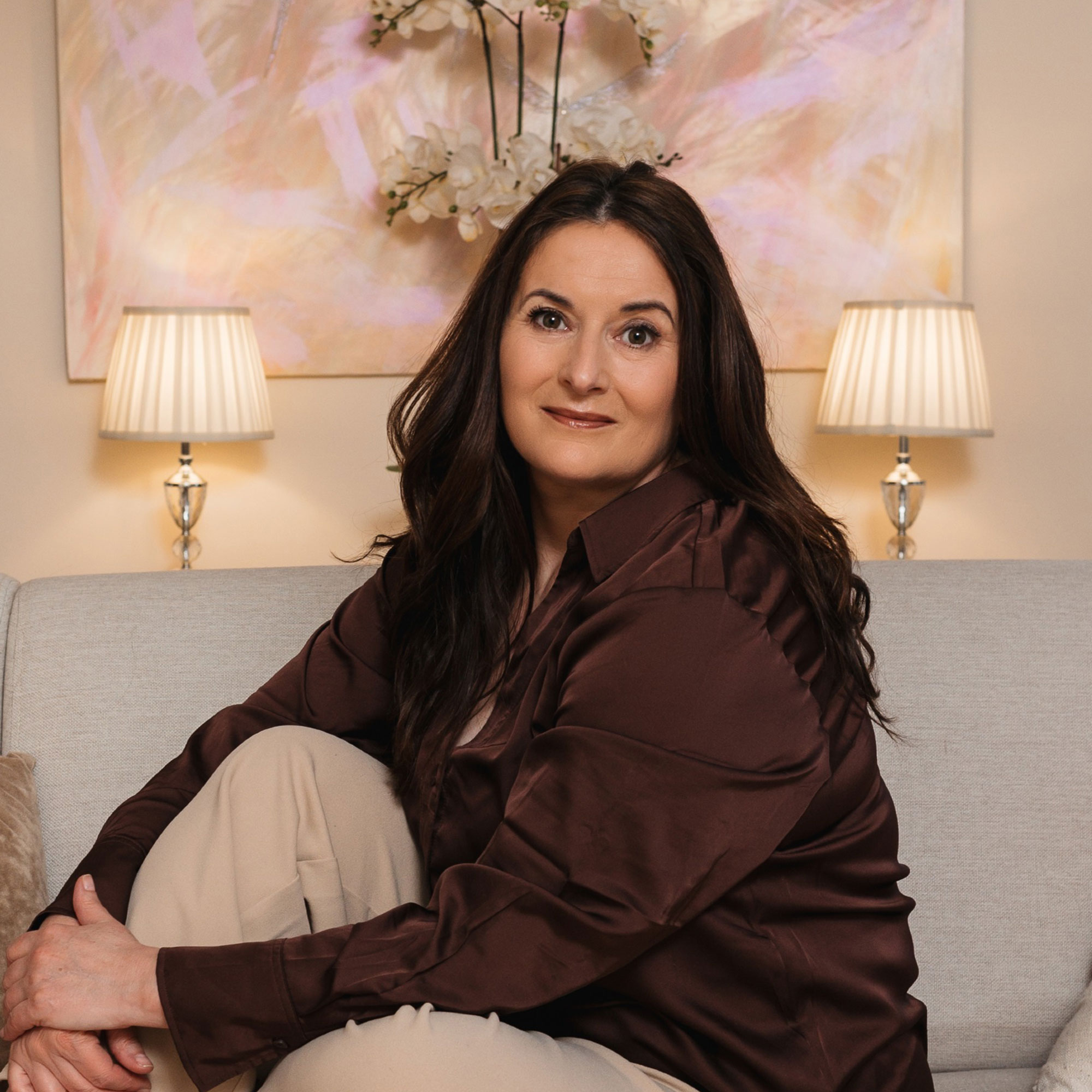H&G’s interiors therapist asks – 'Why do people find it so hard to downsize?'
When financially and practically, it often makes sense


Interiors therapy and Feng Shui are often used when buying and selling homes, which means the pros and cons of downsizing, along with finding a perfect Feng Shui property often come up in conversation.
I’ve been working with some couples downsizing and selling homes lately, all of whom are enthusiastic about starting afresh in a new home after up to 40 years in the ‘family home’ where they brought up their children. It’s been interesting learning why they have decided to do it now, and in some cases, why they waited so long.
We’re blessed with a wealth of larger properties that are ideal for family or multigenerational living. Unfortunately, for those families desperate to expand into a more spacious home, much of the current housing stock is occupied by elderly couples or those who have been widowed. Some are unwilling to move, others are afraid of the unknown, and still more stay in cavernous echoing homes from a sense of obligation. These properties won’t reach the market until their owners’ care needs are too great to allow them to remain in their own homes, or they have sadly passed away.
Why do people find it so hard to downsize?
In the meantime, the house has become dated, potentially developed unnoticed repair issues, and become a burden to its more mature owner because larger homes can be impractical and expensive to maintain for one or two people.
Once a homeowner dies, a property may remain empty for years while probate and beneficiary issues are resolved. We see buildings deteriorating before our eyes and they are targets for squatters and vandals when they could be happy family homes. Honestly, it’s criminal to see so many homes effectively abandoned in these circumstances.
There must be a better way, one which dissolves the bottleneck of access to these larger properties, but first, let’s acknowledge the reasons for staying put in a significantly sized home rather than downsizing to a more convenient option.

The legacy property
Many parents believe it is their ‘duty’ to leave the property to the children in their will.
Design expertise in your inbox – from inspiring decorating ideas and beautiful celebrity homes to practical gardening advice and shopping round-ups.
That’s all well and good if those who inherit genuinely want to live in the house and make it their own home, but often the location of the family home is impractical for the work or lifestyle of the next generation. Add in the complication of squabbling siblings inheriting and the potential for significant death duties on a property sold in sought-after locations, and things can get stressful while the legalities are resolved.
Being pragmatic about the future, and considering the sale of a large property as soon as it becomes too big for the current occupant’s comfortable use, gives the option to move somewhere new and release equity to enjoy life or gift in a tax-efficient way to family members.
However, we have to take into account the emotional ties that come with longstanding family homes. I never underestimate the sentimental connection to a property, especially if a beloved child or spouse was lost while living there. Sometimes the thought of moving somewhere new feels like a betrayal or abandonment of that love. The thing is, when sadness and grief take over, far from the home being a joyful and consoling space, it emphasizes the absence of loved ones.
If this is a barrier, please remember we hold memories in our hearts. The people we love aren’t in one specific place, they are with us constantly, regardless of where we live. Would they really want you struggling, surrounded by empty rooms, and paying exorbitant heating bills?

Another issue that is currently high on my agenda is remaining part of the community. This is especially important for downsizers who have lived in an area for many years and have been active in the local church, parish council, business, clubs, groups, or volunteering. They have a network of friends and connections that extends far beyond the bricks and mortar they live in. This is a situation where having access to appropriate properties in the same village or location is essential.
For someone enmeshed in their community, moving to a new town can cut them off from a support network and be detrimental to their mental and emotional well-being. It might be easier for the kids, but for an active senior with a lot of friends, it can feel like a prison sentence. Regardless of convenience to other family members, it may be better to find a property that enables them to remain involved, without the millstone of maintaining a large house hanging over their head.
The most straightforward solution is to downsize while occupants are still well enough to make the most of a new lifestyle in a home more suited to their requirements, and ideally, one that can be future-proofed so they can remain residents on their terms without worry or inconvenience.
Issues with downsizing
Downsizers tend to be older people who no longer require a large home, or divorcing couples dividing a property asset. Seniors raise these points when considering downsizing:
- There has to be a positive motivation to downsize, releasing equity to the kids might not be sufficient, while ‘future-proofing’ and high energy/repair bills probably are.
- They have spent many years making a home their own and it often feels ‘safer’ to stay, even if it’s an increasing struggle, rather than move somewhere new.
- Decluttering to downsize: deciding what to keep and what to declutter is daunting. Inevitably not all the furniture and possessions will fit into a smaller space, and this can feel overwhelming, especially when they try to do it alone. This is where having emotionally detached support to work through everything they own can be very helpful and take the pressure off busy or exasperated family members who have no interest in the process.
- Fear, especially after a bereavement. They feel a closeness to a deceased spouse (or pets) in the current home and are afraid they will lose the connection by moving away.
- Fear of the unknown – will they like the new property/area/neighbors/how will they manage?
- ‘Better the devil you know’. A house can become a ‘friend’ with its noises, squeaks and idiosyncrasies.
- Having a lot of space inside and workshop capacity outside means craft rooms, studies, music rooms, tinkering sheds, and endless wardrobes. While they are used less and less as homeowners mature, it’s hard to imagine compacting everything into a smaller home or abandoning long-held hobbies or collections.
- It’s seen as a compromise, or even a social failure to move to a smaller home.
- They often grew up as war babies with a ‘make do and mend’ attitude – where will they keep the offcuts of wood and fabric scraps they just might need one day?
- The logistics of solicitors and moving – it may have been much simpler when they bought the property many years ago and they’ve heard from other people how stressful moving can be.
- A lot of the legal paperwork is now done online which isn’t always comfortable for older people. I admire the estate agents who make time to support their downsizers through these challenges.
- It takes time to detach emotionally from a place potentially lived in for 50 years or more. Not just for the occupants, but for other members of the family too.
The divorcing and separating downsizers issues are different:
- Someone is usually fighting to keep the ‘family’ home. They resent being forced into something smaller.
- The status symbol.
- They’ve often done remodelling work to create their ideal home and don’t want to leave it.
Why it’s a good idea to downsize
- Larger homes require more maintenance and left unmanaged they deteriorate quickly.
- Big gardens are expensive to maintain if you don’t do it yourself.
- High heating costs impact everyone, and if rooms are being closed off to save on bills, it’s time to move out.
- Freshly decorated, modern, or recently renovated homes are easier and cleaner to manage as well as being cheaper to run than older, larger properties.
- Larger homes may be on bigger plots and more distant from neighbors – this can lead to a feeling of vulnerability and fear of being unnoticed if something goes wrong. It can be reassuring to live closer to a support network.
- Moving nearer to the children means spending time with grandchildren without having to host them.
- Some memories aren’t helpful, especially after a trauma or long illness, so a fresh start is a positive way forward.
- Rattling about in a large house alone can be unsettling and lonely.
- So many clients tell me they have attics, garages, basements, and sheds full of stuff they are holding onto for adult children who have moved out and have homes of their own. It’s a great opportunity to give it all back. NB: the adult kids don’t want their stuff, they just can’t be bothered to deal with it.

Of everyone in the housing market, the mature downsizers tend to have the most flexibility of income. Most are mortgage-free, giving them the luxury of being cash buyers with all the benefits that brings. They are also shrewd regarding the value of money, so I would love to see governments implement Stamp Duty discounts and offer other motivations to encourage seniors to release larger properties that no longer suit their lifestyles. This would make sense and help rebalance the housing market, freeing up homes for larger families to thrive in.
Frankly, to make this happen, we need an abundance of suitable properties to downsize into and we need to make the conveyancing process simpler regardless of age or online proficiency and deal with hidden loopholes that create problems further down the line – as we are seeing with many leasehold properties.
Retirement communities have lots to offer, but they aren’t for everyone, and some have eyewatering service charges and fees. Moving from a spacious detached property into an apartment may feel like a step too far, and there is little value in choosing a new home without easy access to a town centre if it will soon be time to give up the car.
Getting back to our old friend ‘future-proofing’, single-storey living is often easiest, but having an adaptable property can be preferable for individuals who have ‘gone upstairs to bed’ their entire life. With so many unused buildings in our town centers, including spacious former hotels and pubs, this is a prime development opportunity for councils and savvy property companies to focus on this expanding and potentially lucrative market.
FAQs
So what really needs to change to encourage more downsizing?
A greater understanding of the differing needs of downsizers in comparison to those moving up the property ladder. Downsizers look for property which is more manageable but still has room to breathe and entertain, however, few are enthusiastic about renovation or remodeling.
There are also stages to consider, someone downsizing in their 60s is likely to still be active, driving, perhaps having the grandchildren to stay. That’s a very different requirement to someone in their 80s who doesn’t drive but wants to remain as independent as possible.
This is the ideal opportunity to rethink the space seniors need and use for 99% of the year, and not feel obligated to hold onto a large property just to host the ‘family Christmas’.
If you already travel to spend the holiday with other members of the family, leaving your large house chilled and empty until your return, then imagine how good it would be to live somewhere warm and friendly by this time next year.
Downsizing shouldn’t be rushed. Visit the area you are interested in and talk to experts about the type of property available and compare it with your own needs. Visit lots of different properties and factor in accessibility now and in the future. I have three amazing sets of neighbors who downsized from huge homes into elegant new-build apartments. They love their new lifestyle and friends and would never go back to the drafts, leaks, and emptiness of their old homes.
If the time is right, I hope you find somewhere just as lovely.
Suzanne is the author of Welcome Home, How Stuff Makes or Breaks your Relationship, available at Amazon.

Suzanne is an Interiors Therapist, Feng Shui consultant, and author of Welcome Home, how stuff makes or breaks your relationship. She specializes in understanding the energetic impact of homes and certain possessions may have on all aspects of life, health and relationships, and the ways in which ‘stuff’ can actively prevent people and families from thriving and enjoying the lifestyle they deserve.